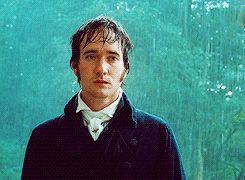The archetype of the Self (and the other): A Jungian take on the mechanism of attraction
A tale about taking back your unconscious projections and tapping into your inner potency to cultivate the unique gifts you bring to the world.
In the first half of life, we tend to shape ourselves to fit our familial and sociocultural environment. It is an egocentric terrain, full of dragons and fraught with expectations about how we should live our lives and who we think we ought to be based on what we’ve been taught. But in the “second half of life,” as Carl Jung called it, comes a call to shift toward soul, the indwelling Self to which each of us is inextricably tethered by invisible strands. The Self is the archetype of wholeness. And we all carry our own brand.
“The ideal of the individuation process, as Jung described it, is the conscious realization and integration of all the possibilities contained within the individual. Needless to say, few people achieve individuation. As with so many ideals, it is more valuable to engage in the process than to lust after the distant goal.”
June Singer
I’m going to emphasize the word lust here, and pick back up where we left off with the balmy midwinter mansoon. Remember that smirk on my analyst’s face when I’d spill the tea each week about my close-ish encounters of the masculine kind despite my swearing off men altogether? It was a knowing grin, painted across her face because she knew what all these gentlemen callers were about. Every single one who came down in that deluge, flooding my spinster solitude had a marked way with words. The fact that they were all writers, poets and philosophers was not lost on her, nor me.
Tess has had a front-row seat to the inner workings of psyche longer than I’ve been alive. She’s circled the psychoanalytic block long enough to know that when the Unconscious closes one door long overdue, it blows the hinges off another, with a whole host (or in my case, hosts) of libido-in-waiting on the other side.
Don’t read me wrong. I’m no Freudian. For Jung, libido was a word that couldn’t be held literally for it to be in any way useful. Such a stance is far too reductive and doesn’t leave room for the nourishing dimension of the symbolic life. To quote legendary analyst June Singer once more from her book Boundaries of the Soul, libido for Jung was “the divine creative force of nature.” Tension indeed. Among Jungians, the directive for individuation (healing into wholeness and aligning with the indwelling archetype of the self) is to track the movement of libido within your own psyche. “Follow your bliss” as Joseph Campbell was famous for saying.
There’s a thread you follow. It goes among
things that change. But it doesn’t change.
People wonder about what you are pursuing.
You have to explain about the thread.
But it is hard for others to see.
While you hold it you can’t get lost.
Tragedies happen; people get hurt
or die; and you suffer and get old.
Nothing you do can stop time’s unfolding.
You don’t ever let go of the thread.
William Stafford, The Way It IsThe thing is, I hadn’t been following the thread. I was a spinster with a dusty loom locked away in a forgotten room. For the better part of my life I’d let the desires I held most dear go untended, putting every other thing in front of what I wanted most: to pen down the stories inside me and weave them into a tapestry to be shared.
Mythologist and elder, Michael Meade says, “When everything falls apart there’s an acceleration of calling.” Further, “Because what calls to us is timeless, the calling can come at any time. At each turn in the road our life’s work awaits us; thus our calling keeps calling no matter our age or position or condition in life.”
“The calling is calling to the genius inside the person… the calling is very specific to the individual… it’s an essential part to our soul. We’re not here to fit in. You have to fit in enough to not get arrested,” he says. And even that’s questionable in some circumstances.
“The problem in most situations is not a lack of calling; but a fear of responding to the call.”
Low blow, Mr. Meade.
When we don’t cultivate what’s being called from within, we’re pushed and pulled from without. It’s just the way it is. It’s called the unconscious but make no mistake, it is very much conscious. Jung said psyche is not in us, rather we are in psyche.
Writer Natalie Goldberg describes it this way in her book Wild Mind:
“Western psychology calls wild mind the unconscious, but I think the unconscious is a limiting term. If it is true that we are all interpenetrated and interconnected, then wild mind includes mountains, rivers, Cadillacs, humidity, plains, emeralds, poverty, old streets in London, snow, and moon. A river and a tree are not unconscious. They are part of wild mind. I do not consider even a dream unconscious. A dream is a being that travels from wild mind into the… conscious self to wake us up.”
Elizabeth Gilbert talks about it in Big Magic when she speaks of stories as entities desiring expression in the living world through a chosen host. No wonder I feel possessed sometimes…
Our main man C.J. - oh yes, I did just call Carl Jung that - takes it further (perhaps a little too far) with this caution:
“Until you make the unconscious conscious, it will direct your life and you will call it fate.”
I was reminded by Francis Weller last week of the phrase Jung had inscribed above the door of his home: “Vocatus atque non vocatus deus aderit.” It means “Called or not, the Gods will come.”
Here’s how that makes me feel: exactly like Shenzi, the hyena voiced by Whoopi Goldberg in The Lion King, the moment Mufasa’s name is uttered. “Ooooooooh. Do it again!”
That maelstrom of men - or male-storm… see what I did there? - swirling around me with their words and wiles, though very real in their own right, were also stand-ins for my unconscious projections. Somehow pulled into my purview by forces greater than me in order to show me my own path forward. What is not made manifest within is mirrored in the environment. I’ll never forget what Tess said to me: “Your attraction to these men is about your creative process and your emerging self.” That hit.
“And, when you want something, all the universe conspires in helping you achieve it.”
Paulo Coelho, The Alchemist
These men, their way with words, as well as the way they’d centered their lives around their creative work far from the beaten path was attractive to me. In Jungian thought, one of the tragically comedic mechanisms of attraction is that we are hopelessly drawn to those who embody traits we wish to cultivate, consciously or not. This is true romantically and platonically (and don’t even get me started about how parents birth their own shadows, that’s another series of essays altogether). It’s that whole “you complete me” trope. Life is always edging toward wholeness: the union of opposites. For the most part it all happens unconsciously, hence Dorothy Boyd’s reply to Jerry Maguire: “You had me at hello.” You don’t know what you don’t know, but you damn sure feel it.
But the thing was, I did know, at least in part. Such is the blessing and the curse of neurotic introspection paired with regular Jungian analysis. I’d known all my life there was a writer in me. And that whirlwind of wordsmiths circling me like the tornado that took Dorothy to Oz was holding up a mirror to that part of me that had not yet leapt into aligned action. I was still dragging my heels along the labyrinth, not yet heeding the call to make my lifelong dream a reality.
A critical component of individuation is the willingness to take back your projections, both positive and negative, allowing yourself to grow large enough to contain the paradox (and potency) within and free those you love and admire from the tyranny of your projected fantasies.
“Do I contradict myself? Very well then I contradict myself, (I am large, I contain multitudes.)”
Walt Whitman
The point is that within each whole is contained its opposite existing in potentia. Pure potentiality. And since the Self as an archetypal energy within each of us - our own personal cosmic center - is autonomous with its perpetual movement being toward the actualization of wholeness, we are pushed, pulled, provoked, possessed, perturbed, turned on, rained out… You get the idea, whatever it takes to stir libido and start moving the internal compass toward true north.
This saga of mine is not yet fully told or even unfolded. But since that time, I’ve taken significant steps toward aligning my life with all I learned about myself during that wild rumpus. There’s still more to come complete with dreams and wilder-than-fiction synchronicities to illustrate how I followed the thread to capture the emerging image of my animus, or “inner man.” More on that next week.
I’d rather be dry but at least I’m alive. Unless, of course, it’s raining Mr. Darcy; in which case, let it pour. Most ardently.
“Let yourself live in something that is already yours - your own wild mind.”
Natalie Goldberg





